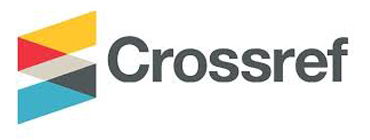MENTORING ISLAMIC RELIGIOUS VALUES FOR DROPOUT STUDENTS IN KALIBARU MANIS VILLAGE BANYUWANGI
Abstract
Full Text:
PDFReferences
Anwar, S. (2021). Internalisasi Nilai Pendidikan Akhlak dalam Surat Al-Hujurat Ayat 11-13 Menurut Tafsir fi Zilalil Qur’an. JIE (Journal of Islamic Education), 6(1), 1. https://doi.org/10.29062/jie.v6i1.190
Arifin. (2021). Interview 19 September 2021.
Baharun, H. (2017). Total Moral Quality: A New Approach for Character Education in Pesantren. Ulumuna, 21(1), 57–80. https://doi.org/10.20414/ujis.v21i1.1167
Creswell, J. W. and J. D. C. (2018). Qualitative, Quantitative, and Mixed Methods Research Designs. In Fast Facts to Loving your Research Project. Sage Publications, Inc. https://doi.org/10.1891/9780826146373.0007
Daulay, H. P., Dahlan, Z., Syahputra, M. I., & Arfandi, M. S. (2021). Pendidikan Akhlak dalam Kitab Ta’limul Muta’allim Thariq Al-Ta’allum Karya Syaikh Burhanuddin Az-Zarnuji. Jurnal Kajian Islam Kontemporer (JURKAM), 1(3), 134–140.
Dewi, T., Lidiya, H., Tsabita, H., & Michelle, C. (2021). Open Access Indonesia Journal of Social Sciences. Open Access Indonesia Journal of Social Sciences, 4(1), 132–142.
Diasti, K. (2021). Jurnal Pendidikan Islam. Manusia Dalam Prespektif Agama Islam, 1(maret), 151–162.
Djan, I., & Adawiyyah, S. R. (2021). A new decade for social changes. Technium Social Sciences Journal, 17, 235–243.
Doc. Researcher. (2021). Document Study Community Learning Center (CLC) Miftahun Najah, 09 August 2021.
Elihami, E. (2022). An innovation of character of Islamic religious studies education towards education 4.0 in Elementary School: Bibliometric Reviews. J. Basicedu Vol, 6(1).
Eriani. (2021). Interview 24 September 2021.
Furoida. (2021). Interview 20 September 2021.
Hakim, D. A. (2022). Internalisasi Nilai-Nilai Pendidikan Agama Islam melalui Metode Pembiasaan Siswa Madrasah Ibtidaiyah. COMSERVA Indonesian Jurnal of Community Services and Development, 1(12), 1231–1251. https://doi.org/10.36418/comserva.v1i12.197
Hartman, R., Blakey, W., & Gray, K. (2022). Deconstructing moral character judgments. Current Opinion in Psychology, 43, 205–212. https://doi.org/10.1016/j.copsyc.2021.07.008
Hassanlangi, M. R., Afrooz, G. A., & Zardkhaneh, S. A. (2021). Psychological and Social Roots of Academic Exhaustion of High School Students in Hormozgan Province: Developing a Model of The Education Sustainability. 3(4), 457–470.
Hermmawan, A. (2021). Pandemi Sebabkan Ratusan Anak di Banyuwangi Putus Sekolah - kbr.id. KBR. https://kbr.id/nusantara/09-2021/pandemi_sebabkan_ratusan_anak_di_banyuwangi_putus_sekolah_/106340.html
Indriyani, V. (2021). Teacher’s perception on building character by integrating islamic values into foreign language lesson in indonesian context. ETERNAL (English, Teaching, Learning, and Research Journal), 7(2). https://journal.uin-alauddin.ac.id/index.php/Eternal/article/view/22054
Kamarudin, M. A., Kamal, M., Syakir, M., & Safar, J. (2019). Media Sosial dan Dakwah Menurut Islam. Kertas Kerja Dibentangkan Di Seminar Sains Teknologi Dan Manusia.
Kementerian Agama, R. I. (2007). Al-Qur’an Terjemahan. Al-Qur’an Terjemahan.
Kholijah, S. (2022). The Role of Village-Owned Enterprises for the Welfare of the Community of Aek Banir Village, Panyabungan District. Jurnal Mantik, 6(2), 1837–1840.
Khotijah. (2021). Interview 22 September 2021.
Khozin, K. (2008). Pendidikan Agama Islam. Bandung: PT Remaja Rosdakarya.
Kohan, Z. D. (2022). Recognizing and Explaining Ayatollah Khamenei’s Interpretive Presuppositions in the Realization of Social Justice. International Journal of Multicultural and Multireligious Understanding (IJMMU), 9(1), 113–126.
Kurniawaty, I., Dahliyana, A., & Faiz, A. (2021). Kearifan Lokal Sunda dalam Kegiatan Rebo Nyunda dan Potensinya untuk Tujuan Wisata Pendidikan. EDUKATIF: JURNAL ILMU PENDIDIKAN, 3(6), 5035–50425.
Kuswanto. (2021). Interview, 18 September 2021.
Lubis, S. H. H., Pangaribuan, W., Ahmad, S. T., & Arif, S. (2022). Kebijakan Pemerataan dan Perluasan Akses Pendidikan dan Dampaknya terhadap Sekolah Swasta. Syntax Literate; Jurnal Ilmiah Indonesia, 7(5), 6172–6182.
Madri, M., Putra, P., & Aslan, A. (2021). The Values Of Islamic Education In The Betawar Tradition Of The Sambas Melayu Society. At-Tarbiyat: Jurnal Pendidikan …, 4(1), 36–45. http://jurnal.staiannawawi.com/index.php/At-Tarbiyat/article/view/251
Maryani, E., & Yani, A. (2016). Local wisdom of kampung naga in mitigating disaster and its potencies for tourism education. Man in India, 96(12), 4829–4844.
Mashuri, R. S., & Suyatno, S. (2018). Teaching the Students in order to be More Communicative in Elementary school. International Colloquium: Opportunities and Challenges on Education Management in 21st Century, 1(1), 65–72.
Masruroh, S., EQ, N. A., & Suhartini, A. (2021). Implementasi Nilai Iman, Islam Dan Ihsan Pada Pendidikan Agama Di Perguruan Tinggi Umum. MUNTAZAM: Jurnal Manajemen Pendidikan Islam, 2(01).
Mokibelo, E. B. (2022). Disengagement From Schools: Possible Solutions. Journal of Education, 002205742110387. https://doi.org/10.1177/00220574211038707
Murtako, M. (2015). Culture-based character education in modernity era. Ta’dib: Jurnal Pendidikan Islam, 20(1), 149–164.
Mustopa, A., Maulida, A., & Sarifudin, A. (2022). Implementasi Metode Pembiasaan dalam Membentuk Karakter Islami pada Pelajaran Pendidikan Agama Islam dan Budi Pekerti di SDN Sirnagalih 02 Desa Sukamantri Kecamatan Tamansari Kabupaten Bogor Tahun Ajaran 2019/2020. Cendikia Muda Islam: Jurnal Ilmiah, 2(1), 1–16.
Nasihin, N. (2015). Internalisasi nilai-nilai agama islam dalam pembinaan akhlak mulia. Ummul Qura, 5(1), 1–10.
Nata, A. (2005). Fauzan, Pendidikan Dalam Perspektif Hadits. Jakarta: UIN Jakarta Press.
Nazaruddin, K., Perdana, R., Prasetya, R. A., & Mustofa, A. (2022). Environmental Wisdom of Lampung Warahan Oral Literature in Literature Ecology Perspective. Proceedings of the Universitas Lampung International Conference on Social Sciences (ULICoSS 2021), 628(ULICoSS 2021), 704–709. https://doi.org/10.2991/assehr.k.220102.097
Nugraha, M. (2017). Konsep Ilmu Fardu Ain dan Fardu Kifayah dan Kepentingan Amalannya Dalam Kurikulum Pendidikan Islam. Jurnal TAFHIM, 10, 109–114.
Nuriman, N., & Fauzan, F. (2017). The Influence of Islamic Moral Values on the Students’ Behavior in Aceh. Dinamika Ilmu: Jurnal Pendidikan, 275–290.
Obser.Researcher. (2021). Observation, 23 September 2021.
Qutb, S. (2012). Tafsir Fi Zhilalil Qur’an Di Bawah Naungan Al-Quran, Bahasa Indonesia (Edisi Lengkap). Jakarta: Gema Insan.
Ramsdal, G., & Wynn, R. (2022). Attachment and school completion: Understanding young people who have dropped out of high school and important factors in their re-enrolment.
Risky. (2021). Interview 28 September 2021.
Sahiba, A., & Hartati, H. Z. (2022). Implementasi Metode Keteladanan Guru dalam Pembentukan Kepedulian Sosial Siswa. Islamika, 4(1), 79–88. https://doi.org/10.36088/islamika.v4i1.1634
Salami, N., & Widyanto, A. (2018). Etika Hubungan Pendidik Dan Peserta Didik Menurut Perspektif Pendidikan Islam Dan Pendidikan Barat (Studi Komparatif Pemikiran Al-Zarnuji Dan Paulo Freire). DAYAH: Journal of Islamic Education, 1(2), 164–181.
Saleh, S. P., Cangara, H., Sabreen, S., & AB, S. (2022). Digital Da’wah Transformation: Cultural and Methodological Change of Islamic Communication in the Current Digital Age. International Journal of Multidisciplinary Research and Analysis, 05(08), 2022–2043.
Setiawan, A. (2014). Prinsip pendidikan karakter dalam islam: studi komparasi pemikiran al-Ghazali dan Burhanuddin al-Zarnuji. Dinamika Ilmu, 1–12.
Sholichah, A. S. (2018). Teori-Teori Pendidikan Dalam Al-Qur’an. Edukasi Islami : Jurnal Pendidikan Islam, 7(01), 23. https://doi.org/10.30868/ei.v7i01.209
Sukardi, I. (2016). Character Education Based on Religious Values: an Islamic Perspective. Ta’dib, 21 (1), 41.
Sutarmin, S., Zuchdi, D., & Suardiman, S. P. (2014). Penanaman Nilai-Nilai Dasar Humanis Religius Anak Usia Dini Keluarga Perkotaan Di Tk Islam Terpadu. Jurnal Pembangunan Pendidikan: Fondasi Dan Aplikasi, 2(2), 156–166. https://doi.org/10.21831/jppfa.v2i2.2656
Suyudi, M. (2022). The Efforts of Islamic Religious Education Teachers and Characteristics in Improving Students’ Learning Interest. Edukasi Islami: Jurnal Pendidikan Islam, 11(01), 217–228.
Tang, M., Muslimah, M., Riadi, A., & ... (2021). Student Attitudes: A Comparative Analysis Of Burhanuddin Al-Zarnuji’s Thought And The Islamic Education Perspectives. At-Tarbiyat: Jurnal …, 4(1), 1–13. http://jurnal.staiannawawi.com/index.php/At-Tarbiyat/article/view/244
Tenggoro, D. J. (2019). Buku Pintar Pengembangan Ekonomi Desa. Desa Pustaka Indonesia.
Thaba, A., & Baharuddin, M. R. (2022). Influence of Parental Attention, Self-Concept, and independent learning on Students’ Learning Achievement in the Indonesian Language Subjects. Eurasian Journal of Educational Research, 97(97), 103–131.
Valor, C., Antonetti, P., & Crisafulli, B. (2022). Emotions and consumers’ adoption of innovations: An integrative review and research agenda. Technological Forecasting and Social Change, 179, 121609.
Wahidin, K., Kilaras, K., Si, K., & Indra, J. (2022). Kembang kilaras; revitalisasi kearifan lokal sebagai sumber pembelajaran pai. Jurnal Education and Development, 10(1), 247–250.
Warsih. (2021). Interview 19 September 2021.
Zakaria, N. D., & Azahari, R. (2022). Menghayati Nilai Iman, Islam dan Ihsan dalam Mendepani Cabaran Kontemporari. Ar-Raiq, 5(1), 20–74.
DOI: http://dx.doi.org/10.30829/tar.v29i2.1809
Refbacks
- There are currently no refbacks.

Jurnal Tarbiyah by UIN Sumatera Utara Medan is licensed under a Creative Commons Attribution-NonCommercial-ShareAlike 4.0 International License.
Based on a work at http://jurnaltarbiyah.uinsu.ac.id/index.php/tarbiyah.
Permissions beyond the scope of this license may be available at http://jurnaltarbiyah.uinsu.ac.id/index.php/tarbiyah/about/submissions#copyrightNotice.
















